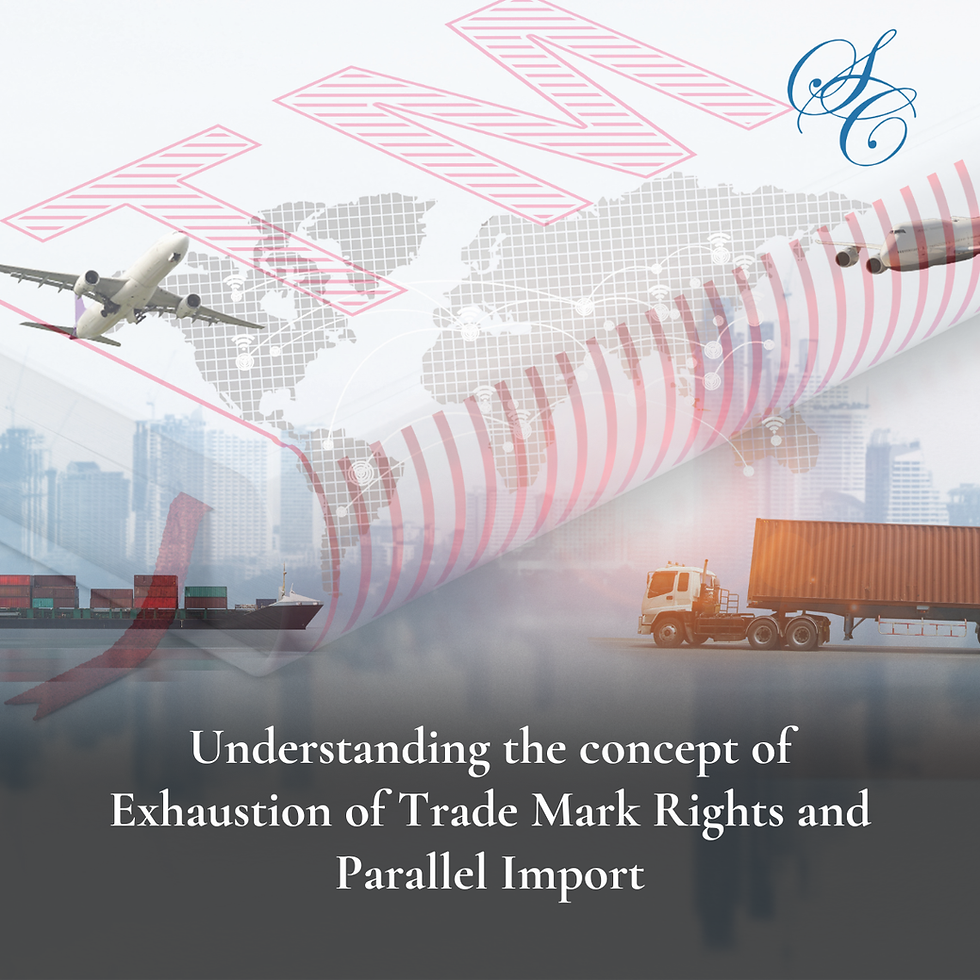Rules of Procedure Are Hand Maiden To The Ends Of Justice: IPAB
- Sarwajeet Singh
- Sep 18, 2020
- 4 min read
Our Associate, Anand Kumar discusses “Rules of Procedure Are Hand Maiden To The Ends Of Justice: IPAB”
“The Rules of Limitation are not meant to destroy the rights of parties but to ensure that the parties do not resort to dilatory tactics” observed the Intellectual Property Appellate Board (IPAB), in an appeal preferred by the Pioneer Electronic Corporation (“Appellant”). The Appellant filed the appeal against an order of the Deputy Registrar of Trade Marks (“Registrar) dismissing the Applicant’s Interlocutory Petition (IP) on the ground that under the Trade Marks Rules, 2002 (Rules), [1] the appellant cannot be granted an extension of more than one (1) months time to file the evidence in support of application.
The Appellant alleged that it has used the mark PIONEER since the year 1956. With an intent to protect its rights in the mark, it filed an application for registration in Class 9. The application was opposed by M/s. Suse Electronics. The Appellant failed to file evidence in support of its application within the statutory two (2) months of stipulated time period. Rather it requested an extension of time by one (1) month. Further, the Appellant filed an additional request for the extension of time by another one (1) month along with an IP.
The Registrar, after more than ten (10) years, dismissed the IP and refused to take the evidence filed by the Appellant on record on the ground that, as per Rule 51 of the Rules, there cannot be an extension of more than one month’s time in aggregate and, therefore, any further request for extension of time should not be allowed.
The IPAB observed that the Registrar had misconstrued the Trade Marks Act, 1999 (“Act”) and Rules. In order to appreciate the true purport of the law and intent of the legislature, the IPAB referred to Section 131 of the Act, which deals with discretionary power of the Registrar for ‘extension of time’ in all cases where the stipulated fixed time period has not been expressly provided under the Act. Though Rule 51 of the Rules provided for two (2) months’ time period with an additional one (1) months’ time period in aggregate for filing of the evidence in support of the application, there is no such definite period of time under Section 21 (4) of the Act. Thus, the IPAB clarified that the relevant provisions dealing with the ‘extension of time’ be read and construed harmoniously than in isolation. It further stated that the restriction of one months’ time prescribed under the Rules is directory in nature than mandatory.
Stressing upon the intention of the legislature vis-a-vis Rule-51, the IPAB drew a distinction between the definite time period stipulated for filing of the Notice of Opposition/Counter Statement and non-definite time stipulated for filing of evidence in support of opposition and/or application, as the case may be, under Section 21 of the Act. Based on this distinction, the IPAB deduced that the intention of the legislature was not to limit the time to file evidence, but to give the Registrar discretionary powers to take on record the relevant evidence.
The IPAB reiterated the law laid down by the Gujarat High Court in Wyeth Holding Corp. and Another v. Controller General of Patent, Design and Trade Marks & Others [2007 (34) PTC 1], that the time period for submission of evidence in support of opposition provided under the Rules is ‘directory’ and not mandatory.
As regards the true meaning of the word “shall”, the IPAB observed that the Apex Court and various High Courts have held that the word “shall” ought to be construed, not in accordance with the language in which it is clothed, but, in the context in which it is used and the purpose it seeks to serve. The word ”shall” prima facie means mandatory, but the Court may ascertain the real intention of the legislature by carefully attending to the whole scope of the statute. Therefore, IPAB held that mere use of the word “shall” in Rule 51 is neither enough to treat the rule as mandatory, nor to assume that it overrides the mandate and spirit of Section 131 of the Act.
Further, the IPAB observed that the rules of procedure are hand maiden to the ends of justice and should not be permitted to effect substantial justice. The Rules cannot limit the discretionary powers vested on the Registrar by the Act. It is a settled principle of law that where a rule, formulated under the Act, is contradictory to the Act itself, the Act shall prevail.
Moreover, it is law of the land that if a refusal to condone delay results in grave miscarriage of justice, it would be a ground to condone delay.
Based on the aforesaid principle of law, interpretation of statute and precedents, the IPAB noted that the delay of mere four (4) weeks on the part of the Appellant to file the evidence in support of application was warranted owing to the fact that the Appellant is a multi-national corporation having offices in different international jurisdictions. Consequently, the IPAB allowed the appeal and set aside the impugned order of the Registrar. Further, it also imposed a cost of twenty-five thousand rupees (Rs 25,000) on M/s. Suse Electronics for intentionally delaying the proceedings by raising false pleas.
[1] Trade Marks Rules, 2002 has been repealed
Citation: Pioneer Electronic Corporation vs M/s. Suse Electronics & Ors. – OA/52/2018/TM/DEL, order dt. June 18, 2020 by Intellectual Property Appellate Board.




Comments